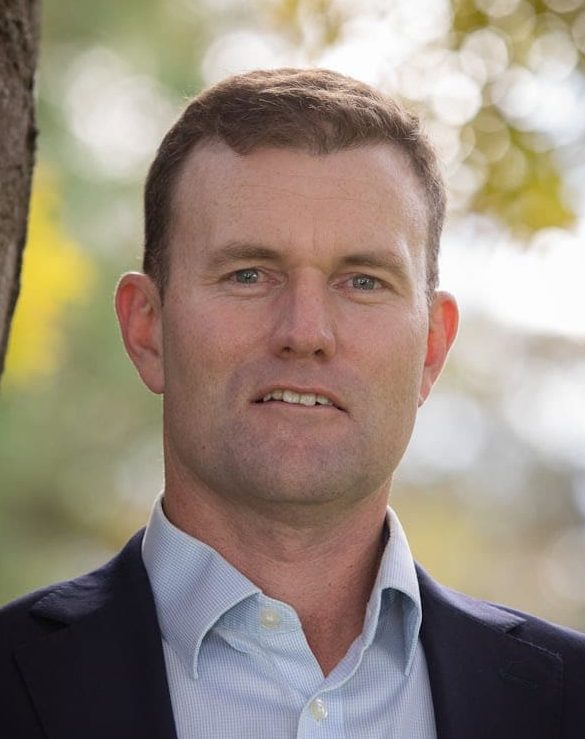MEAT & Livestock Australia’s managing director says changing the industry’s highly publicised carbon neutral by 2030 target will be on the table as the organisation works on its next five-year plan.
Michael Crowley spoke to Beef Central’s Weekly Grill podcast last week, where host Kerry Lonergan asked whether MLA was going to make an official move away from the target, which has become known as CN30. The organisation is currently working on its next five-year strategic plan to set the industry’s research and marketing priorities through to 2030.
Mr Crowley said while he was happy to consider changing the target, it was important for the industry to keep investing in the field.
“I am happy to have that on the table as part of our discussions around our strategic plan,” he said.
“But I don’t want to take the foot off the pedal on the investments we are making against this very important area for our industry.”
Calls have been growing for the industry to move away from “carbon neutral” or “net zero” as its primary climate target, with a push to adopt targets that are more focused on global warming. Cattle Australia made reviewing the target one of its first policy areas after forming in 2022.
Many have argued that bringing livestock emissions to zero exceeds the industry’s responsibility in the global effort to limit climate change because methane emissions are known to break down over a period of 10-12 years – as opposed to carbon from fossil fuels which cumulates in the atmosphere.
A CSIRO report released last year said the industry could realistically be “climate neutral” by 2026, meaning methane emissions would be stable and breaking down as fast as they go up.
CN30 driving investment
While the climate targets have been up for the debate, Mr Crowley said it was important to remember where CN30 came from and the investment it had generated since it was set in 2017.
“Where we sit today, we probably aren’t on track to be net zero by 2030, however, we are further along the track than we would have been if we did not set some ambitious targets along the way,” he said.
“We could be 80-90pc along the way by 2030 and I think that would be more progress than any other sector has made and we should be very proud of that.”
Mr Crowley said CN30 was an ambitious target that had put the industry ahead of the game, with about $100m invested into it. He said it was also set before many other targets across the globe had been set.
“It was driven off insights from our customers, domestically and internationally, that this was an issue that our industry needed to get ahead of,” he said.
“It has got us absolutely focused, from an investment point of view, on looking at emissions reduction technologies – looking at genetics and selecting for methane as a trait, looking at pasture systems that drive productivity as well as reduce emissions, carbon storage below the ground in the soil and above the ground in vegetation.
“Our last report card has shown that we had a 70pc reduction in net emissions against a 2005 baseline, so we are ahead of the game.”
Climate neutral still a goal
Achieving climate neutrality has always been recognised as one of the major milestones of the CN30 target.
Mr Crowley said MLA has been talking to some of the industry’s peak bodies about what that might mean for the industry and how it can tell the story.
“If our industry is not contributing to additional temperature rise, that is huge,” he said.
“We will be shouting that from the rooftops as we make significant progress towards that.”
Plenty had changed since the target was set in 2017, with more Governments and other industries setting their own targets.
The funding environment for climate targets has also changed, with the formation of a $175m cooperative research centre directly targeted at the issue – for which MLA is a tier 1 partner.
Mr Crowley said there will be some changes to the organisation’s approach in the next strategic plan and that there were plenty of options.
“We were pretty ambitious a few years ago for where we could get to and I think we will make some changes,” he said.
“I’m not sure what they are yet, but it is all on the table for further debate and discussion.”
- To listen to The Weekly Grill click here. Beef Central will more on Mr Crowley’s views value based marketing tomorrow.


20,000 years ago the sea level was around 120 meters lower than it is today , 6,000 years ago the sea level was around 2 meters higher than todays level, until someone is able is able to give me a plausible explanation to why this has happened I will be sceptical of todays science and the scapegoating of the cattle industry in Australia.
I thought it pretty silly when a MLA representative told me we can not count the carbon in cattle as a sink because it is part of a cycle. Where does the carbon in any animals body come from?
But apparently you can count carbon in trees and the soil.
Weather forecasters cannot really predict the weather beyond a few days because weather patterns are so complicated, but apparently an even more complicated thing, that being emissions and sinks, we can calculate with extreme accuracy to the point some want to create taxes on it.
Maybe there are people out there with good intentions, but I see a lot of people whose sole purpose is to take money off others for nothing.
God one Giles . It is surely time we started to put some common sense it this whole carbon issue . The whole carbon thing is mired in fiction